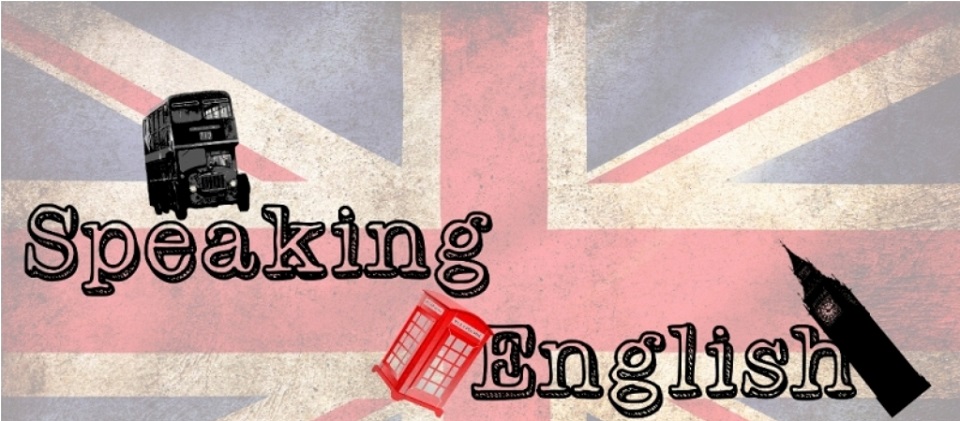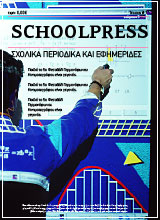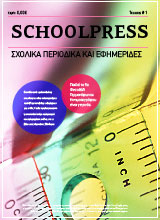
(By John Tsekouras)
It is crystal clear to a grand number of Greek students that, nowadays, schools do not promote a subtle education in any way. In fact, not only are the students deprived of the opportunity to gain a broader education, but also they end up hating knowledge, as the procedure through which the aforementioned is obtained, really aggravates their everyday life. Hectic schedules, stress, superficial knowledge and lack of time for constructive activities are the predominant traits of their everyday life! However, why has education become such an ironic nightmare?

First and foremost, let’s have a closer look at the way the Greek educational system functions. Each student, especially those in the last grades of Senior High School, has to deal with the prospect of taking the Pan-Hellenic exams, a procedure that most students dread. More specifically, the day of a Greek student starts at 8.10 a.m., when s/he has to be at school. At 2.00 a.m., s/he leaves school and returns home, exhausted, disoriented and dejected. Of course, s/he does not have the “prerogative” of relaxing, as he has to study, in a hurry, because during the afternoon he has 2 or 3 hours of private lessons. After all those lessons, the pressure that is exerted and the hopelessness that this situation arises (which it is inflicted on a daily basis), s/he still has to continue studying with “meager” breaks till late, maybe, after midnight. On balance, the Greek “traditional” students feel that they lose control of their lives and that no matter how hard they try the results will always be frustrating. They spend the most productive period of their life on an unfair and abhorrent effort that makes them hate education. Even the so-called “best” students end up disliking school and their whole mentality is altered. In order to survive under such circumstances, they have to abandon their interests (e.g. sports), their social life, their habits, their desires and every field of knowledge that isn’t linked to their final exams…

Nevertheless, why has this situation become permanent? It is widely known that every year there are several attempts to change this system by each minister. As a result, almost every student faces a different system of assessment in the Pan-Hellenic exams. But, these changes aren’t organised and usually have to do only with some sectors of the structure of schools. In fact, all the conversions that are proposed usually aim at the transcription of foreign educational systems. However, the most important parameters that are affiliated to the Greek reality and society are profoundly ignored. Thus, each amendment of the educational system is defective. On the contrary, only a large number of radical changes could convert the situation and the mentality that today’s schools and private lessons have created. Beyond any doubt this procedure might take years, but, the results are expected to be more than satisfying. The goals of this procedure aren’t merely technical. This procedure has to deal with a stagnant way of thinking that has dominated in the field of education in decades. Therefore, what we need isn’t a “restoration” of some traits of the system, based on fancy and impressive ideas. We need some sweeping changes that will render school a UNIQUE and INDEPENDENT institution of learning. Only if those that are in charge realise their responsibilities and discharge an organised, innovative and unfaltering effort, the life and the attitude of Greek students towards education will be upgraded. Besides, they aren’t responsible only for their personal mistakes; they are responsible for the idleness that has prevailed, which contributes to the extension of a forsaken school.

In the final analysis, the ideal school should be based on two notions. Not only a modern, interesting and interactive way of learning but also a schedule and a teaching method that assures its independence, so that private lessons and other complements or substitutes become “obsolete” and superfluous. Beyond any doubt, it is an intricate combination but it absolutely promotes the subtle satisfaction of the posterity’s needs.










